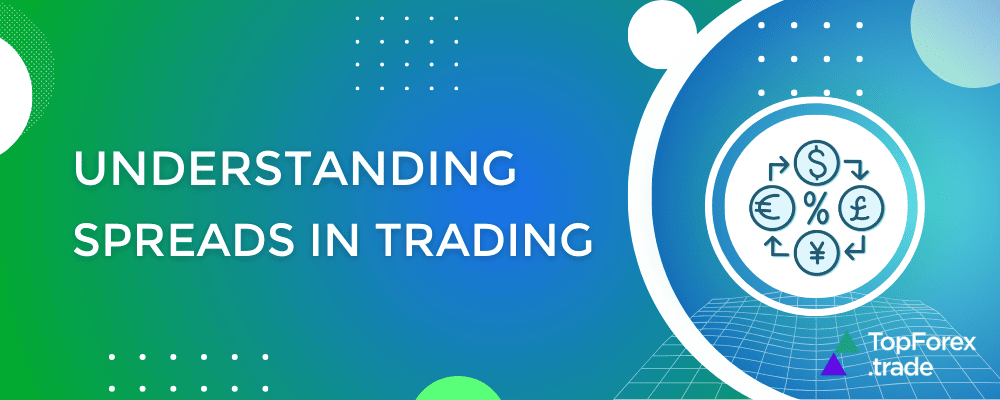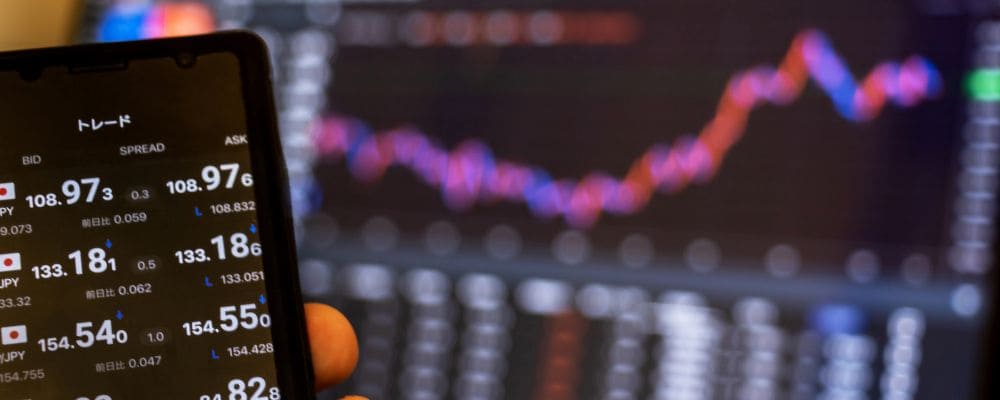How Forex spreads work and the best brokers for tight spreads

Forex trading is the buying and selling of currencies in the largest financial market globally—the foreign exchange (ForEx) market. One of the essential concepts traders must grasp is the concept of spreads, which directly affect how much profit or loss is made on a trade. Understanding how Forex spreads work and how they can impact your trades is vital for developing successful trading strategies.
In trading, the “spread” refers to the difference between the bid price (the price at which you can sell a currency pair) and the ask price (the price at which you can buy a currency pair). Essentially, it represents the cost of trading a currency pair. Forex brokers do not charge commission directly on most trades; instead, they profit through the spread, making it one of the key trading costs.
For example, if the EUR/USD currency pair is quoted at 1.1050/1.1052, the spread is 2 pips (1.1052 – 1.1050 = 0.0002). Every trade you enter starts in a negative position due to this difference, and the market must move in your favor by an amount equal to the spread before you break even.
Types of Forex spreads

Forex spreads can be broadly categorized into fixed and variable (floating).
Fixed spreads in trading
Fixed spreads remain constant regardless of market volatility or liquidity. Brokers offering fixed spreads usually act as market makers, meaning they quote both the bid and ask prices. The primary advantage of fixed spreads is predictability—traders know in advance the cost of entering a trade. However, fixed spreads can be higher than variable spreads, especially during periods of low volatility.
Advantages:
+ Greater cost predictability.
+ Insulation from sudden market volatility.
Disadvantages:
Fixed spreads are generally wider than variable spreads.
Brokers may re-quote prices during volatile market conditions.
Variable (floating) spreads
Variable spreads fluctuate based on market conditions, such as liquidity and volatility. These spreads are commonly offered by brokers that use Electronic Communication Networks (ECN) to match buy and sell orders. During calm market conditions, variable spreads can be tighter than fixed spreads, but they tend to widen significantly when the market is volatile.
Advantages:
+ Typically lower during periods of high liquidity.
+ More competitive for experienced traders seeking tight spreads.
Disadvantages:
Spreads can widen significantly during volatile periods, increasing the cost of trading.
Less predictability for managing trading costs.
How Forex spreads affect your trading

- Cost of trading
The spread acts as a cost that traders must pay to enter the market. This cost affects profitability, especially for frequent traders or those using short-term strategies. For instance, scalpers—who rely on small, frequent trades—need to be mindful of spreads since high spreads can diminish profits.
- Short-term vs. Long-term traders
Short-term traders, such as day traders or scalpers, are more affected by wider spreads because they rely on small price movements. Even a slight increase in the spread can wipe out potential gains. In contrast, long-term traders (swing traders or position traders) are less sensitive to spreads because they aim for larger price movements, which can absorb the spread more easily.
- High vs. low spread pairs
Some currency pairs inherently have higher spreads than others. Traders should consider the spread when choosing pairs to trade. For example, trading major currency pairs with low spreads may be more cost-effective than trading exotic pairs with higher spreads, depending on the strategy.
How to minimize the impact of spreads
Selecting a broker with competitive spreads is crucial, especially for traders who rely on tight cost margins. Brokers that offer variable spreads with direct market access tend to provide better pricing during liquid market conditions.
Also, timing your trades can help minimize the spread’s impact. Trading during peak market hours, when liquidity is high, typically results in tighter spreads. Conversely, trading during off-peak hours or during volatile news events can lead to wider spreads.
Stop-loss orders help manage risk when spreads widen unexpectedly. While stop-losses may not prevent losses entirely, they can limit your exposure to volatile conditions that can cause the spread to widen dramatically.
For traders making frequent trades, focusing on currency pairs with typically lower spreads (such as major pairs) can help reduce overall trading costs. Exotic pairs, while potentially offering greater volatility, may result in higher trading costs due to wider spreads.
Best Forex brokers with low spreads

Choosing the right broker plays a crucial role in managing forex spreads and trading costs. Partnering with reputable brokers not only ensures that you receive competitive spreads but also provides access to advanced trading tools, reliable platforms, and excellent customer service. Let’s take a closer look at some of the top brokers and the advantages they offer for traders looking to minimize costs and optimize profitability.
eToro trading with low spreads
eToro is well-known for its social trading platform, which allows traders to follow and copy the trades of successful investors. This feature is particularly useful for new traders looking to learn from experienced professionals. In addition to competitive spreads, eToro provides a user-friendly interface and a wide selection of currency pairs, making it an attractive choice for both beginners and seasoned traders.
- Key benefits:
– Access to social trading and copy trading features.
– Tight spreads on major currency pairs.
– A highly intuitive and easy-to-use platform.
AvaTrade trading with low spreads
AvaTrade offers fixed spreads, which ensures cost predictability regardless of market volatility. This is especially beneficial for traders who want to avoid fluctuating spreads during times of high volatility. AvaTrade also provides access to a variety of trading platforms, including MetaTrader 4 and 5, and offers an extensive range of educational resources, making it suitable for traders of all skill levels.
- Key benefits:
– Fixed spreads for predictable trading costs.
– Access to multiple trading platforms, including MT4/MT5.
– A wide range of educational tools for continuous learning.
XM trading with low spreads
XM is known for offering ultra-tight spreads, especially on major currency pairs, which is ideal for traders who are looking to keep their trading costs to a minimum. They also provide negative balance protection, which ensures that traders cannot lose more than their account balance. With a focus on fast execution and no re-quotes, XM is a great choice for traders who value speed and reliability.
- Key benefits:
– Ultra-tight spreads on major currency pairs.
– Fast execution with no re-quotes.
– Negative balance protection for added security.
Exness trading with low spreads
Exness is another top broker offering very competitive spreads, particularly for traders who prefer variable (floating) spreads. Exness caters to both retail and institutional clients, offering a diverse range of account types to suit different trading styles. The broker is known for its excellent customer service and offers 24/7 support, making it ideal for traders who need around-the-clock assistance.
- Key benefits:
– Competitive variable spreads.
– Wide range of account types for different trading needs.
– 24/7 customer support for added convenience.
Trading with well-established brokers like eToro, AvaTrade, XM, and Exness provides traders with several advantages, particularly when it comes to minimizing the impact of spreads. These brokers offer competitive pricing, advanced trading platforms, and comprehensive customer support, allowing traders to focus on maximizing their potential returns. Whether you’re a beginner looking to copy trades on eToro, or an experienced trader seeking fast execution and tight spreads on XM, these brokers provide the tools and conditions necessary for smooth Forex trading.
Related articles: